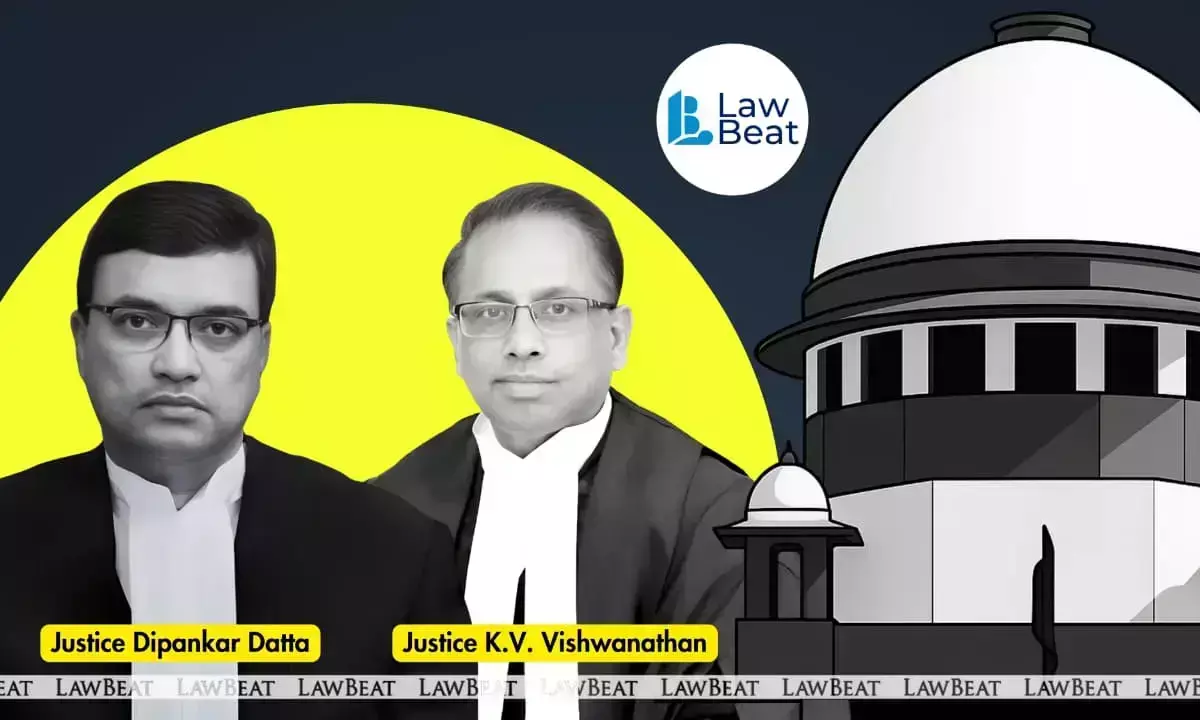'Highhanded, Arbitrary & Illegal,' SC Sets Aside Termination Of Jharkhand Teachers

SC orders reinstatement of teachers, says natural justice violated in Jharkhand case
The Supreme Court on October 9, 2025 set aside the termination of three Scheduled Tribe category teachers whose services had been discontinued for allegedly not meeting the eligibility requirement of securing a minimum of 45% marks in their intermediate examination.
A bench of Justices Dipankar Datta and K.V. Viswanathan held that the Jharkhand government authorities had acted in an arbitrary, high-handed and illegal manner in terminating the services of the appellants, Ravi Oraon, Premlal Hembrom, and Surendra Munda (since deceased), without justifiable cause and in breach of due process. “The respondents terminated their services by following a course of action which shocks our conscience,” the bench observed, restoring their appointments and granting full service benefits.
The case concerned recruitment to the posts of Intermediate Trained Teachers (Classes I to V), advertised on August 10, 2015, by the District Education Superintendent, Dhanbad. The appellants were selected and began service in December 2015.
On September 27, 2016, show cause notices were issued to them alleging that they did not fulfil the requirement of 45% marks in their intermediate examination. The notices also questioned the validity of their graduation degrees.
In reply, the appellants clarified that as members of the Scheduled Tribe category, they were entitled to a 5% relaxation and required only 40% marks, not 45%. They further explained that they had secured 42.55%, 40.22%, and 41.33% marks respectively and were thus eligible. The Department, however, recalculated their scores after excluding marks in vocational subjects, arriving at lower percentages of 38.56%, 39.78%, and 39%, and terminated their services by separate orders dated October 7, 2016.
Challenging the termination, the teachers filed writ petitions before the Jharkhand High Court. A Single Judge allowed their petitions, holding that the department had wrongly applied Rule 21 of the Jharkhand Primary School Teacher Appointment Rules, 2012, which pertains to preparation of the merit list and not to determining eligibility.
The Single Judge found that each of the appellants had scored more than 40% marks when vocational subject marks were included. The Division Bench, however, reversed this decision, holding that vocational marks could not be included and that a fresh show cause notice was unnecessary.
When the matter reached the Supreme Court, the bench examined the relevant rules, the method of mark calculation, and the procedure followed by the authorities. It found that Rule 21 governs preparation of merit lists for appointment, whereas Rule 4 of the 2012 Rules sets out eligibility criteria for appearing in the Teacher Eligibility Test.
The Court clarified that Rule 21 has no bearing on determining whether a candidate meets the minimum qualification requirement, which is governed exclusively by Rule 4.
Referring to the method of mark computation stated on the reverse of the intermediate marksheet, the Court held that vocational subject marks meant to improve the overall percentage, must be taken into account. “We find no reason as to why the method of calculation of percentage, as provided on the reverse of the marksheet, should not be applied. Marks secured in the vocational subject are a way for a candidate to improve his or her overall percentage of marks,” the bench observed.
The Court emphasised that the respondents failed to justify excluding the vocational marks, and in the absence of any legal bar, the calculation method printed on the marksheet should have been followed. It also criticised the use of Rule 21 by the authorities and the High Court Division Bench, holding that both erred in applying a provision meant for merit list preparation to determine eligibility.
The bench further found that the termination orders were vitiated by violation of the principles of natural justice. The show cause notices alleged failure to meet the 45% criterion, but the termination orders were passed on the basis of a different ground, that the appellants failed to secure 40% marks after excluding vocational subjects, without giving them an opportunity to respond. “Findings were returned by the respondents which were at variance with the allegations levelled in the show cause notices,” the Court noted; “In the absence of fresh show cause notices specifically requiring the appellants to explain why the marks secured in the vocational subject should not be taken into account for determining their overall percentage, the appellants had been denied a fair and reasonable opportunity of hearing.”
The bench rejected the Division Bench’s view that natural justice was not violated and described its reliance on Escorts Farms Ltd. v. Commissioner, Kumaon Division (2004) as misplaced. “Complying with natural justice principles, on facts and circumstances, would not have been an idle formality and the decision was not a foregone conclusion,” the Court said.
Finding the termination orders unsustainable, the Court observed that the authorities actions were “arbitrary and illegal.” It directed that Ravi Oraon and Prem Lal be treated as continuously in service from their original appointments in December 2015, with full arrears of pay, continuity of service, and seniority benefits, though the period not spent teaching would not count toward experience for promotion.
The bench further held that the late Surendra Munda’s termination was also illegal and ordered his heirs to receive full arrears of pay up to his death. “He shall be deemed to have died in harness and, if there be a scheme for compassionate employment, his heirs may apply thereunder,” the Court said.
Case Title: Ravi Oraon v. The State of Jharkhand & Ors
Bench: Justices Dipankar Datta and K.V. Viswanathan
Date of Judgment: October 9, 2025
